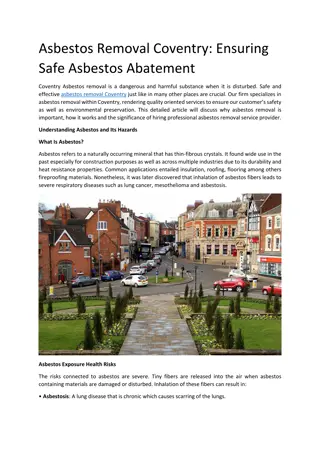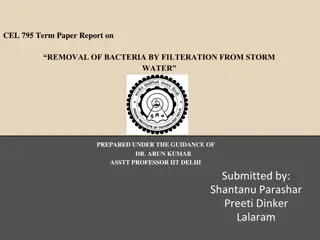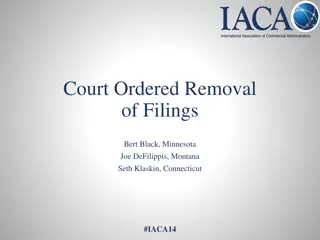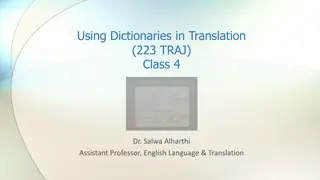
Prophet Muhammad's Teachings of Peace and Compassion
Explore the transformation from a narrative of swords being keys to paradise to a message of love and compassion by Prophet Muhammad and Bahá'u'lláh, shedding light on the divine experiences that shaped their missions of peace.
Download Presentation

Please find below an Image/Link to download the presentation.
The content on the website is provided AS IS for your information and personal use only. It may not be sold, licensed, or shared on other websites without obtaining consent from the author. If you encounter any issues during the download, it is possible that the publisher has removed the file from their server.
You are allowed to download the files provided on this website for personal or commercial use, subject to the condition that they are used lawfully. All files are the property of their respective owners.
The content on the website is provided AS IS for your information and personal use only. It may not be sold, licensed, or shared on other websites without obtaining consent from the author.
E N D
Presentation Transcript
Removal of the Sword with the Word Mohammad Norozi
Prophet Muhammad is reported to have said: Swords are the keys to paradise. The Messenger of God (Muh ammad) said, All that is good lies in the sword and under the sword s shadow, for people shall not rise save by the sword and swords are the keys to Paradise and Hellfire. Sean W. Anthony, Muh ammad, the Keys to Paradise, and the Doctrina Iacobi: A Late Antique Puzzle. Der Islam 91.2 (2014), p. 257.
Bahullh in the Lawh-i Tabib (Tablet of Physician) talks about a dream in which He beheld the Prophet Mu ammad. This dream serves as a confirmation of the removal of the sword with love and compassion and ultimately His mission of peace: One day I saw in a dream that I associated with His Holiness, the Apostle (Mu ammad), may the souls of all else but Him be sacrificed for His sake. Words were revealed and utterances were made manifest from that Dawning-Place of God s Book. Thereupon He said: Previously I had said: Paradise is beneath the shades of swords. However, if I were manifest in these days, I would say: Paradise is beneath the shade of the tree of friendliness and compassion. Upon hearing this blessed and exalted Word, I declared: May the souls of all men be a sacrifice unto Thy loving-kindness, tender mercy and bounty! Subsequently, the Ocean of utterance spoke that which the Pen was unable to reveal and the ink not capable to make manifest. When I woke up from my sleep I have found Myself filled with gladness for a time, in such wise that it was beyond description. Bah u ll h: The Law -i ab b, provisional translation By Necati Alkan, M idih-yi sm n , (ed. Abdu l-Hamid IshraqKhavari), vol. 8, Tehran 129 BE/1972-73, 78;
This dream of Bahullhs is so captivating. It is befitting to have it here in its original revealed language.
In another place, Bahullh talks about His Divine experience while He was confined in the Siyah-Chal (Balck-pit) Prison of Tehran. One night, in a dream, these exalted words were heard on every side: Verily, We shall render Thee victorious by Thyself and by Thy Pen. Grieve Thou not for that which hath befallen Thee, neither be Thou afraid, for Thou art in safety.
One might ask, why a religion would teach violence in the first place?
The answer might be in the Lawh-i-Mnikch ib. M nikch Limj Hataria (1813 1890), also known as M nikch (Manekji) ib, was born in India of Zoroastrian parents. An able diplomat and devoted adherent of his ancestral religion, M nikch ib was appointed, in 1854, as an emissary on behalf of the Parsees of India to assist their coreligionists in Iran, who were suffering under the repressive policies of the Q j r monarchs. Some time after this he attained the presence of Bah u ll h in Baghdad. Although maintaining to the end of his life allegiance to his Zoroastrian faith, he was attracted to the teachings of the new religion and, moved by the sacrifice of its early martyrs, became a lifelong admirer. Years after their meeting he posed a series of questions to Bah u ll h which led to the revelation of two Tablets in his honour, known as the Law -i-M nikch ib. His questions were mainly on the following topics:
Which of the ancient Prophets and creeds are most acceptable to God? Of all the views on the nature of God and His Messengers, which is correct? Which religion observes the most appropriate dietary laws? What of the various religions understandings of creation is correct?
Bahullh in His response also repeatedly states the following imperative as the ultimate answer to all of M nikch S hib s inquiries about differing religious laws, ordinances and traditions: Be anxiously concerned with the needs of the age ye live in, and centre your deliberations on its exigencies and requirements. The above statement of Bah u ll h would be the ultimate answer to the question previously stated (why a religion would teach violence in the first place?). If the Prophet Muhammad Manifested at the time of Bah u ll h, He too would have not used the sword at all, as Bah u ll h also stated in His dream about the Prophet Muhammad.






















